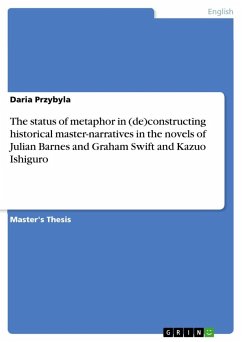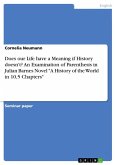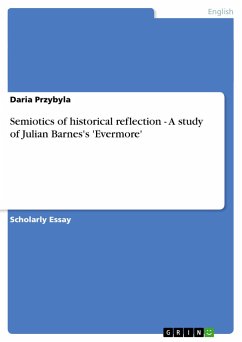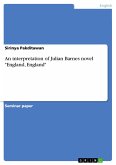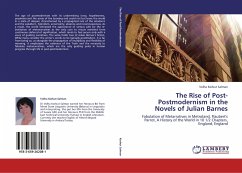Bachelor Thesis from the year 2005 in the subject English Language and Literature Studies - Literature, grade: A, University of Silesia, language: English, abstract: In my thesis I elaborate on the literary creativity of Julian Barnes. My paper consists of two chapters entitled Language as Identity and Difference and History in Time and Space. The predominating part of each chapter is devoted to the position of individuals competing with meta-narratives of language, history, politics, religion, and culture. The ultimate outcome of the protagonists' proceedings is ambivalent in the sense that their efforts are successful only to some extent. However, at the same time, I illustrate that by opposing domination the protagonists manage to undermine the assumed rationale of social discourses and revise the long-established hierarchies of western values. In the first chapter, we have to do with a broad spectrum of ambiguities connected with the usage of language. Barnes's representationof linguistic reality comprises elements of both structural and poststructural linguistics. The author's analysis is based on the writings of many different philosophers and linguists such as: Wolfgang Iser, Ferdinand de Saussure, Mikhail Bakhtin, Roland Barthes, Jacques Derrida and Ludwig Wittgenstein. The subsequent part of the same chapter is devoted to the problem of fragmented narration- mainly with respect to Flaubert's Parrot. In the second chapter, I elaborate on the status of history in Barnes's novels. It is focused on the interrelations between history and society as well as history and individuals. This sort of research profile leads to posing further questions about the master-narratives that encapsulate the image of God and the vision of the whole world- in temporal and spatial terms. This interpretation is performed with the help of some French philosophers like Michel Foucault and Jean Baudrillard. The theoretical account of the linguistic and historical aspects of discourse, as they are presented by Barnes, allows me to describe the author as a left-wing one who rejects formal knowledge that circulates via social and political institutions. The scrutiny of Barnes's texts is the main point of departure to more general questions connected with contemporary literary theory and cultural studies.


